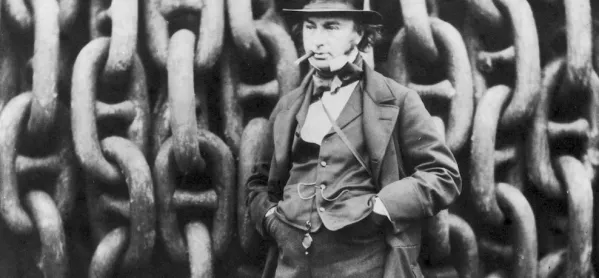Computer programming is hailed as a vital skill; so essential that coding is now a mandatory part of primary and secondary school curriculums. Teaching new skills and updating schooling to match the modern world is undoubtedly a positive step. However, is coding alone the bedrock upon which the 21st century will stand?
Undoubtedly, coding is an immensely useful skill. It’s inspiring in the sense that it gives you a new language to navigate the digital world, and allows you to create within it. And the thinking, both creative and “programmatic”, that you achieve through coding allows you to look at the world differently, understanding the building blocks that make the world and the web. Alone, however, with its emphasis on process rather than meaning, it is not enough to develop the minds of the UK’s youth. As Paulo Freire argues, students should be learning critically, continuously reflecting with an open mindset and a sense of mission. Isolated coding lessons cannot create this appetite.
I applaud the embracing of coding by education systems - but we can’t treat it as the silver bullet for futureproofing the UK. Of more acute concern to young people’s development is the technological revolution that is already favouring automation in a variety of professions, in which computers can perform more rapidly and accurately than humans. Over the next few years, coders may be outcompeted by cheaper, more efficient and faster-scripting computers.
So what should we teach today’s children? The answer lies in our history. The UK’s infrastructure is rooted in the brilliance of engineering. Those who laid the foundations of our nation - Francis Bell, Charles Babbage, Isambard Kingdom Brunel (pictured) - combined engineering skills with creativity, art, science and importantly, underlying humanity, to solve problems. That is why engineering, which itself encapsulates computer programming, is the key to our future. It isn’t fair to expect students to keep abreast of technology’s lightning-like development when we only teach them a portion of the skills they need. Rather, we should give them the critical thinking skillset that will allow them to become our future engineers.
While we can teach computers to write code, they cannot be taught morality, how to create meaning or drive a positive change. Engineers can. They can manage creative solutions to problems and think about how humanity, civic society, art, science and technology can converge to form products and services that people need.
As such, we should encourage polymath skillsets - like those which our greatest engineers have - so that students have the ability to innovate, create art and build structures of the future. In other words, we should equip them to think about the mission of innovation, giving them the tools to achieve it but freeing them from a focus on mastering the mechanics and hard skills that vary with business cycles and machine learning advances. Teaching students the language of coding opens doors, but encouraging the creative mindset that can develops a solution to the twin issues of product design and practicality liberates worlds beyond those doors.
Automation is going to impact our industries and drive changes in our education system. The future lies in critical thinking, a humanised set of skills - this is epitomised in the art of engineering.
Gi Fernando is the founder of digital transformation company Freeformers and tweets at @gifernando
Want to keep up with the latest education news and opinion? Follow TES on Twitter and like TES on Facebook
